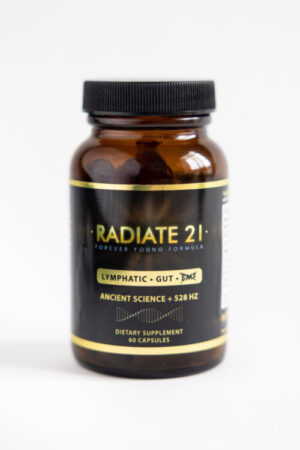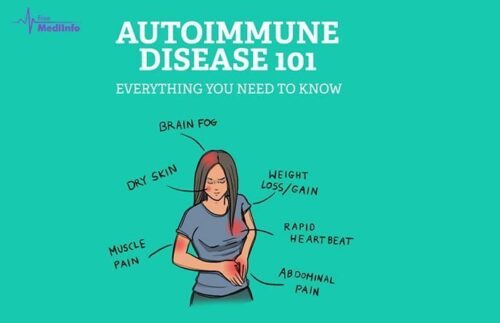Latest studies reveal that the disruption of gut microbiome caused by antibiotics may be linked to increased risk of different types of autoimmune disease like rheumatoid arthritis, lupus, and multiple sclerosis. Since a healthy gut microbiome plays a key role in proper immune system function, antibiotic-induced changes can trigger autoimmune reactions where the body attacks its own healthy cells and tissues.
Fortunately, there are natural ways to promote a balanced microbiome and modulate the immune system without antibiotics. By incorporating gut-friendly foods, probiotic supplements, anti-inflammatory herbs, and other lifestyle factors, you may be able to reduce risk of autoimmunity and maintain immune health.
In this article, we will explore the connections between antibiotic overuse, gut microbiome imbalance, and autoimmune disease. We will also provide a list of 16 science-backed natural immunomodulators that can help optimize your microbiome, calm inflammation, and keep your immune system balanced and protective.
Existing Autoimmune Diseases & Their Symptoms
There are over 100 identified autoimmune diseases that can affect almost any part of the body. Some of the most common autoimmune disorders and their symptoms include:
- Rheumatoid arthritis – Joint pain, stiffness and swelling, typically in hands and feet
- Type 1 diabetes – High blood sugar, frequent urination, increased thirst and hunger
- Multiple sclerosis – Numbness, impaired coordination and vision, fatigue, dizziness
- Psoriasis – Red, itchy, scaly skin patches
- Graves’ disease – Anxiety, fatigue, weight loss, bulging eyes
- Lupus – Joint pain, rash, fever, swollen lymph nodes
- Hashimoto’s thyroiditis – Fatigue, weight gain, sensitivity to cold, constipation
- Celiac disease – Diarrhea, abdominal pain, bloating, weight loss
- Crohn’s disease – Abdominal pain, diarrhea, rectal bleeding, weight loss
- Sjogren’s syndrome – Dry eyes and mouth, joint pain, fatigue
- Myasthenia gravis – Muscle weakness, double vision, drooping eyelids
- Vasculitis – Inflamed blood vessels with symptoms depending on tissues affected
- Alopecia areata – Patchy hair loss
- Vitiligo – Patchy loss of skin pigmentation
- Pernicious anemia – Fatigue, pale skin, dizziness, shortness of breath
- Guillain-Barre syndrome – Weakness and tingling in legs and arms
There are also many less common but equally impactful autoimmune conditions affecting specific organs like the kidneys, brain, intestines and more. Symptoms depend on location but may include pain, swelling, numbness, loss of function and general systemic effects. Prompt diagnosis and treatment are essential to prevent permanent damage.
What Happens When Someone Develops An Autoimmune Disease:
Poor gut health, among other potentially unknown reasons, can lead the immune system to mistake the body’s own healthy cells and tissues as foreign invaders and launches an attack against them. Immune cells like T cells and B cells that normally fight against viruses, bacteria and other threats start targeting the body itself.
B cells produce autoantibodies that bind to the body’s cells and mark them for destruction. T cells may also directly attack body tissues. This leads to inflammation often resulting from the immune activity and can further damage tissues and organs. Chemical mediators like cytokines are then overproduced.
The location of the abnormal immune response determines which tissue or organ is affected and the symptoms produced. For example, destruction of insulin-producing cells in the pancreas leads to type 1 diabetes. If the immune attack is widespread, general inflammation and symptoms like fever, fatigue and joint pain may result.
Over time, the immune-mediated assault leads to tissue damage and loss of function. For example, beta cell destruction in the pancreas causes insulin deficiency and high blood sugar levels. Symptoms are often chronic, wax and wane over time, and lead to increasing disability depending on the organs affected.
Treatments like steroids, immunosuppressants and biologics aim to reduce inflammation and suppress the aberrant immune attack on the body to minimize damage. However, there is no cure for autoimmune disorders. Scientific studies are showing natural immunomodulators continue to show great promise in reducing symptoms and even correcting the immune system over time.
What Are Immunomodulators?
Immunomodulators are substances that help regulate or “modulate” the immune system. They work by either stimulating or suppressing the body’s immune responses.
There are several different classes of Immunomodulators:
- Immunosuppressants – These dampen the immune system and excessive inflammation. They are used to treat autoimmune disorders like rheumatoid arthritis, where the immune system mistakenly attacks the body’s own tissues. Examples include corticosteroids and cyclosporine.
- Immunostimulants – These boost immune function when it is compromised. They are used to treat immunodeficiencies or infections in a weakened immune system, like in cancer patients. Examples include cytokines like interferons.
- Immunoadjuvants – These are added to vaccines to enhance the immune response the vaccine triggers. Common adjuvants include aluminum salts.
- Immunomodulatory antibodies – These biologic agents target specific parts of the immune system. For example, drugs that block tumor necrosis factor (TNF) are used to treat some autoimmune diseases.
- Natural immunomodulators – Compounds derived from plants and microbes can also regulate immunity. Examples are curcumin from turmeric and polysaccharides from mushrooms.
Immunomodulators work through various mechanisms of action depending on the specific drug or compound. This includes effects on cytokine production, immune cell activation, inflammation pathways and more. The goal is to restore balance and normalize immune function.
11 Natural Immunomodulators To Combat Autoimmune Disease
- Chrysanthemum – Contains flavonoids and other compounds that modulate immunity.
- Ashwagandha – a staple in Ayurvedic medicine, contains withanolides that regulate immune cell types and inflammatory cytokines.
- Clove – Has antimicrobial effects; the compound eugenol may regulate cytokines.
- Cinnamon – Reported to have immunostimulant properties and modulate inflammatory mediators. Both Clove and Cinnamon are rich in potent antioxidants like eugenol and cinnamaldehyde to suppress excessive immune reactions
- Coconut oil – Contains lauric acid which has antinflammatory and antimicrobial effects.
- Una de gato – Cat’s claw herb; contains alkaloids that may stimulate the immune system.
- Camu camu – Acerola berry with high vitamin C content that enhances immunity.
- Suma – Adaptogen considered immunostimulating; contains germanium sesquioxide. Cat’s claw, camu camu and suma root are traditional South American herbs that stimulate immune cell activity.
- Sangre de grado – Also known as Dragon’s blood; contains proanthocyanidins that may be immunomodulatory.
- Garlic – Stimulates macrophages, NK cells and T-cell activity; antimicrobial.
- Oregano – Garlic and oregano are both packed with allicin, thymol and carvacrol – antimicrobial compounds that exhibit antiinflammatory effects.
More people are turning to natural approaches to tame autoimmune flare ups and restore immune balance. Thankfully it can be easy to incorporate these amazing botanicals into your daily routine.
Introducing Radiate 21

The immune boosting supplement that harnesses the power of botanicals to promote a healthy immune response.
Carefully crafted with an immunomodulating blend of Ashwagandha, Clove, Cinnamon, Coconut, Cat’s Claw, Camu Camu, Suma Root, Garlic and Oregano, Radiate 21 uniquely leverages the synergistic potential of these plants to calm inflammation and provide immune system support.
Click Here To Learn More About Radiate 21
Together, these exceptional botanicals work better than isolated components. By combining immune-balancing all stars from around the world, Radiate 21 helps restore harmony to over-reactive immunity for full-body comfort.
But Radiate 21 goes further to also support lymphatic drainage and detoxification. Cedar oil, citronella, mint, geranium, kelp, lime, lemon, orange and lemongrass improve circulation and provide antioxidants to enhance overall wellness. With premier botanicals for both immune regulation and whole-body revitalization, Radiate 21 is the smart solution for autoimmune support. Feel the radiance of balanced immunity with Radiate 21!
In Conclusion
The human immune system is remarkably complex, with intricate interactions between various cell types, signaling molecules, and pathways that provide protection against disease. When functioning properly, it can rapidly detect and eliminate threats. However, dysregulation can occur, resulting in either impaired immunity or autoimmunity where the body attacks its own tissues.
As our understanding of immunology grows, so does our ability to modulate immune function using synthetic pharmaceuticals as well as natural compounds from medicinal plants and other sources. Compounds like phenolics, terpenoids, alkaloids and polysaccharides show promise in fine-tuning immune responses.
Much more research is still needed to uncover their mechanisms of action, pharmacology, safety and therapeutic potential. By leveraging traditional practices like Ayurveda and expanding scientific study of immunomodulatory botanicals, we may find affordable, accessible ways to boost immunity and manage autoimmune disorders.
A balanced diet and lifestyle that supports overall wellbeing can also help maintain healthy immune regulation. Further exploration of plant-based immunomodulators represents an exciting avenue for improving preventive health and treating disease.






